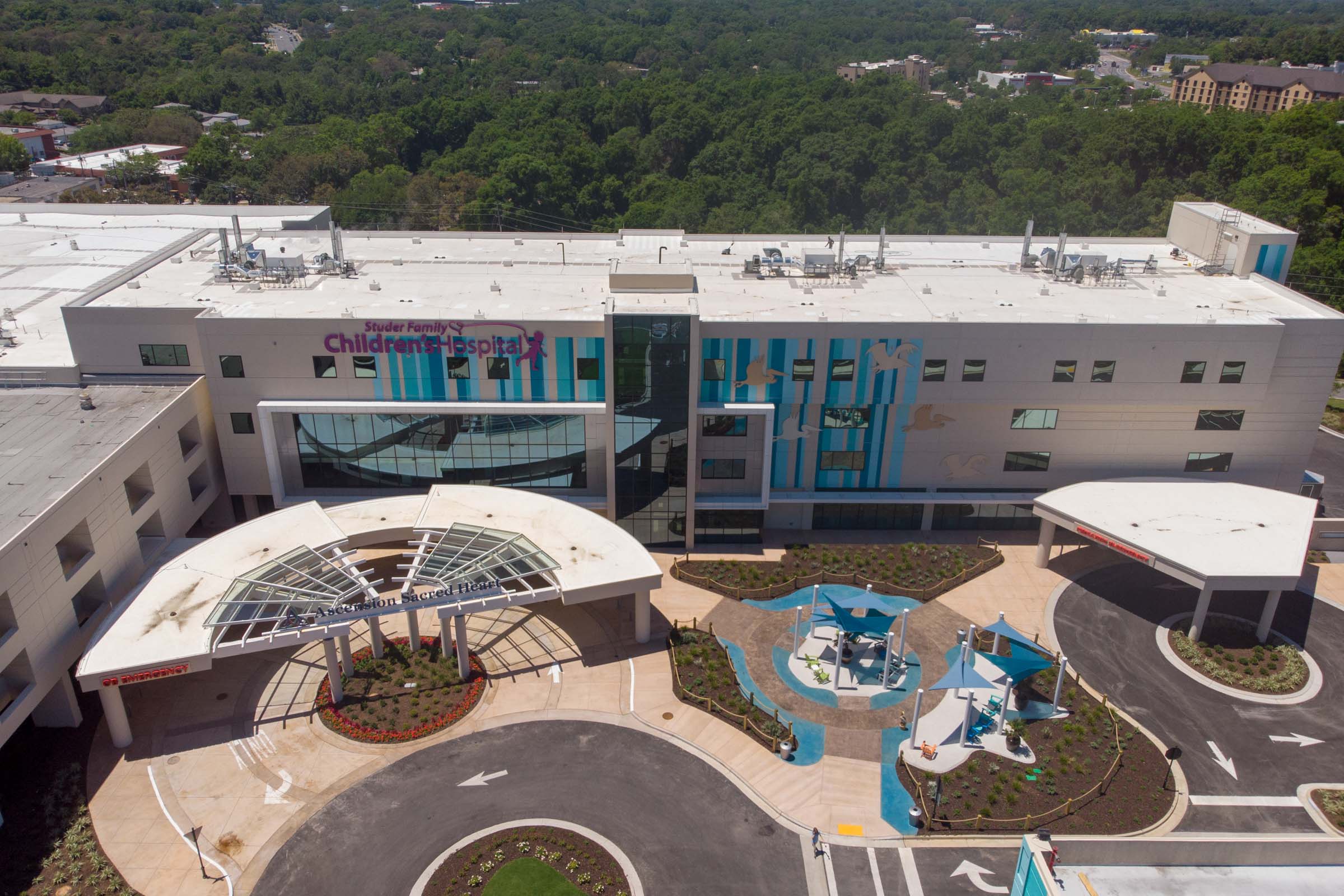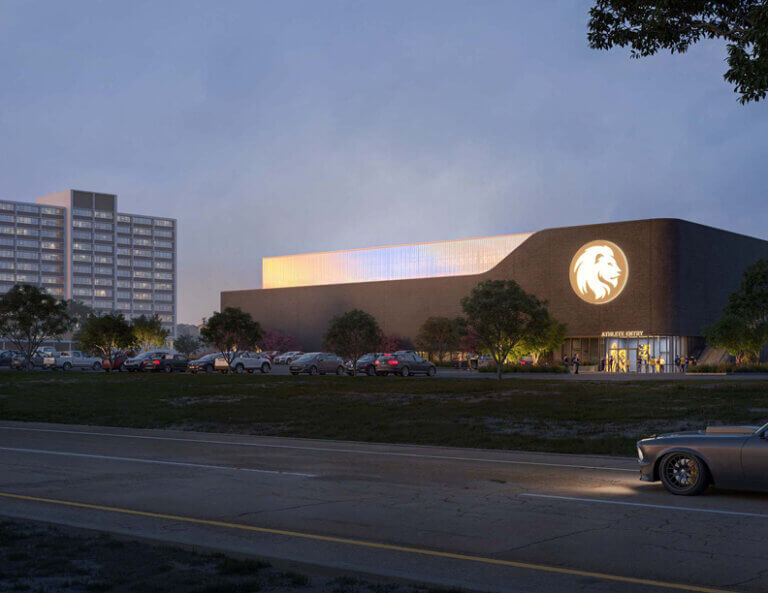
Patient and staff care were primary concerns during this 25-month project, says its GC.
On May 4, Sacred Heart Hospital in Pensacola, Fla., started moving patients into an $85 million, four-story tower expansion that encompasses the 150,000-sf, 126-bed Studer Family Chlidren’s Hospital, which is Northwest Florida’s only hospital solely dedicated to the care of sick or injured babies and children. The hospital, which also serves South Alabama and South Georgia, includes pediatric emergency and imaging departments, 72-bed neonatal ICU and 10-bed pediatric intensive care unit; medical, surgical and observation beds; a pharmacy, inpatient rehabilitation gym, child life playrooms, outpatient lab services, and a family friendly dining facility.
The building team on this expansion, which included HKS Architects (design), WSP (MEP engineer) and Hoar Construction (GC), also added a single-story vertical expansion to the existing hospital, which is currently a shell space for future expansion.
This week, BD+C communicated by email with David Roberts, Hoar’s senior project manager, about this expansion. Here is an edited version of that conversation.
BD+C: What were some of the challenges that this project presented to the building team?
Roberts: The biggest challenge we faced was getting the foundations and underground utilities installed during one of the rainiest years in recent history. Three hurricanes and two tropical storms impacted our schedule, though thankfully not all were direct hits to Pensacola.
Over the course of the project, we lost 137 days of production due to weather and received 170 inches (more than 14 feet) of rain. This was particularly challenging because we had to excavate nearly 25 feet of existing soils out of the entire building footprint, including areas below the existing building to install the foundation system. We also partnered with some incredibly skilled and talented trades and could not have completed the project without them and their incredible efforts.
Hoar Construction states that it specializes in “compassionate healthcare building.” What does that mean, exactly?
Working in, on, and around an existing and very active campus always presents challenges and opportunities for construction. One thing we always discuss as a team is that we’re working at a hospital that is under construction and not a construction site that just happens to be a hospital. That makes a big difference in how we approach our work.
Our top priority is safety for patients, staff, and visitors to the hospital and ensuring that the hospital can provide the services they need to. We are there to make sure the healthcare providers can do their jobs better and help those who are sick and need treatment. Our teams understand that compassion is a huge part of our jobs and that it’s a unique characteristic or trait that we have to have to succeed in healthcare.
Given the importance of patient satisfaction scores for hospitals, did Hoar do anything differently for these projects that would better-guarantee those scores down the road?
The hospital stayed operational throughout the 25-month construction process, which was a huge accomplishment. We also completed the project two months early, meaning the local community got access to state-of-the-art pediatric care nearly 60 days earlier than expected.
We stress patient safety as the most critical part of our job, and we did considerable planning around infection control, cleanliness, noise, and mechanical/electrical/ plumbing interruptions. We were in constant contact with the owner when working on building systems; shutting down these systems to tie in new areas affects all staff and patients. Our project team and the hospital partnered well together throughout the construction process.
To what extent did technology come into play in the design and construction of these buildings?
We used BIM for overhead coordination and clash detection, and we used 3D scanning for documenting construction. 3D scanners allowed the team to get 360-degree imagery of all areas within the project and put together an as-built record for the hospital.
We are planning on using technology like Virtual Reality earlier in our [future] projects to help clients confirm design decisions.
In general, what trends in the healthcare sector are having an impact on Hoar’s projects in this sector?
We are still seeing more renovation projects and/or renovation with an expansion component.
Many of the large healthcare systems are moving non-clinical support services into warehouse/distribution facilities off campus—departments such as central sterile, materials management, pharmacy, facilities management, and other administrative functions. Valuable space inside the hospital is then made available for higher revenue-producing departments, and some of that is changing from office space to clinical space with many different needs.

